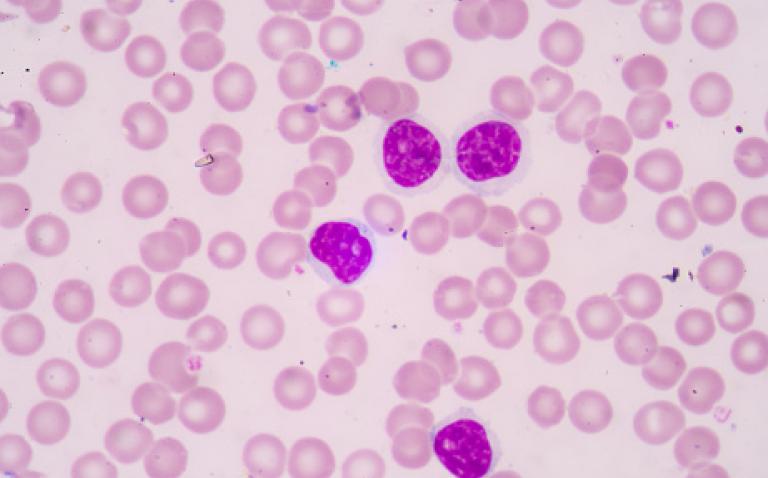AbbVie has announced that the UK’s Medicines and Healthcare products Regulatory Agency (MHRA) has granted venetoclax, its investigational treatment for chronic lymphocytic leukaemia (CLL), a positive scientific opinion through the Early Access to Medicines Scheme (EAMS).
The decision means that patients with certain types of difficult-to-treat CLL can now potentially gain access to venetoclax while the relevant regulatory bodies continue to review the marketing authorisation application.
There are over 3000 new cases of CLL in the UK each year, with the average age of diagnosis being 71.1,2 Through EAMS, venetoclax is indicated for the treatment of adult patients with CLL in the presence of 17p deletion or TP53 mutation, and who are unsuitable for or have failed a B-cell receptor pathway inhibitor (BCRi). In addition, venetoclax can be used in the treatment of adult patients with CLL in the absence of 17p deletion or TP53 mutation, and who are unsuitable for or have failed both chemo-immunotherapy and a BCRi.
The aim of EAMS is to provide earlier availability of promising innovative medicines to UK patients who have high unmet clinical need, and has only been granted to four medicines since its inception in 2014.3,4
“As part of AbbVie’s fight against CLL we are delighted to receive the EAMS positive scientific opinion which will help ensure that eligible patients with limited current treatment options gain access to this therapy as soon as possible,” says Alice Butler, Medical Director, AbbVie UK. “AbbVie is proud to have entered into the voluntary EAMS and today’s positive announcement marks another important step for patients with CLL.”
Venetoclax’s mode of action works by targeting the B‐cell lymphoma‐2 (BCL-2) protein, which regulates cell survival, restoring the body’s ability to trigger cancer cell self-destruction (apoptosis).5,6 The treatment represents an important potential option for difficult-to-treat CLL patients who have certain genetic mutations, or those who have failed BCRi treatments, and who have previously had limited treatment options.
References
- American Cancer Society. (2013) Leukemia – Chronic Lymphocytic. Available at: www.cancer.org/acs/groups/cid/documents/webcontent/003111-pdf.pdf Accessed August 2016.
- Cancer Research UK. CLL incidence. Available at: http://www.cancerresearchuk.org/health-professional/cancer-statistics/statistics-by-cancer-type/leukaemia-cll/incidence Accessed August 2016.
- UK Government. Early access to medicines scheme (EAMS): scientific opinions. Available at: www.gov.uk/government/collections/early-access-to-medicines-scheme-eams-scientific-opinions. Accessed August 2016.
- UK Government. Expired early access to medicines scheme scientific opinions. Available at: www.gov.uk/government/publications/early-access-to-medicines-scheme-expired-scientific-opinions/expired-early-access-to-medicines-scheme-scientific-opinions. Accessed August 2016.
- Stilgenbauer S et al. Venetoclax in relapsed/refractory chronic lymphocytic leukemia with 17p deletion: a multicenter, open-label, phase 2 study. Lancet Oncol 2016. DOI: http://dx.doi.org/10.1016/S1470-2045(16)30019-5
- Souers AJ et al. ABT-199, a potent and selective BCL-2 inhibitor, achieves antitumor activity while sparing platelets. Nat Med 2013;19(2):202–8.










